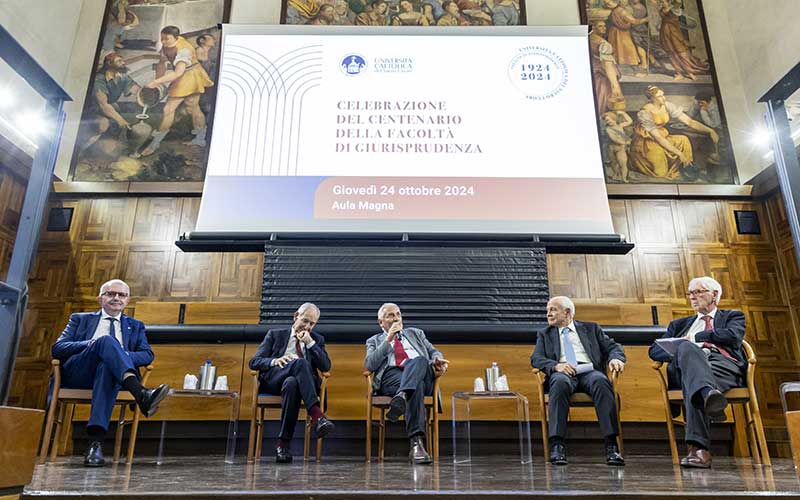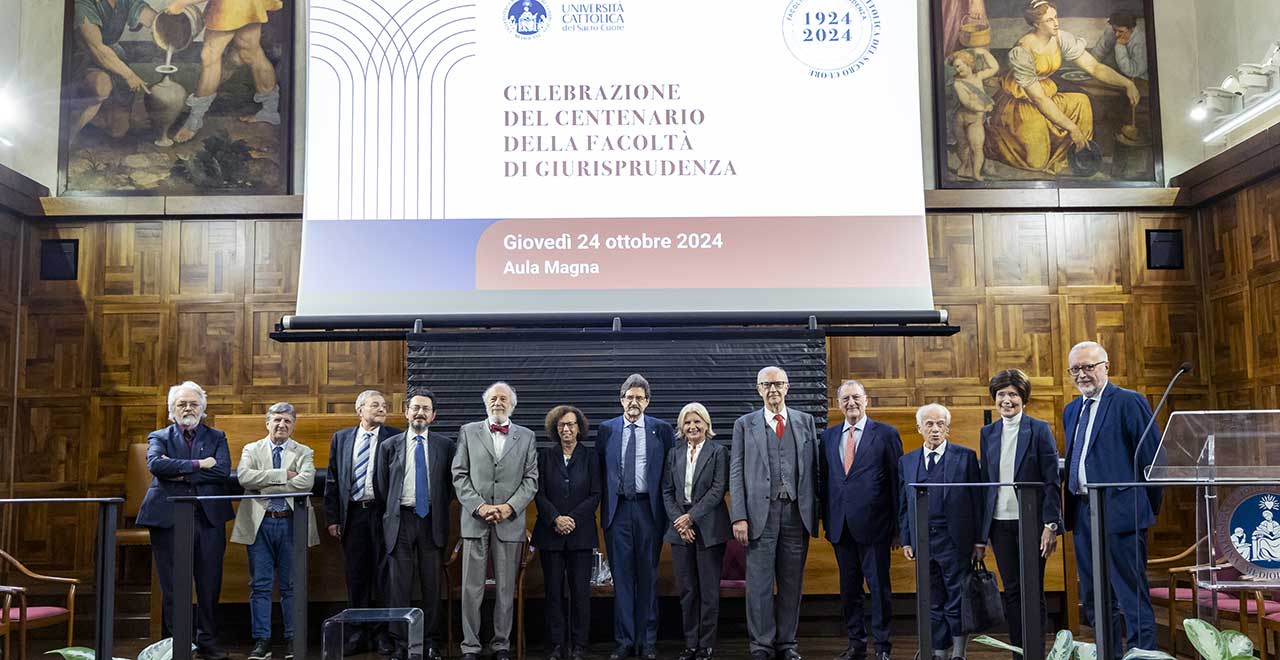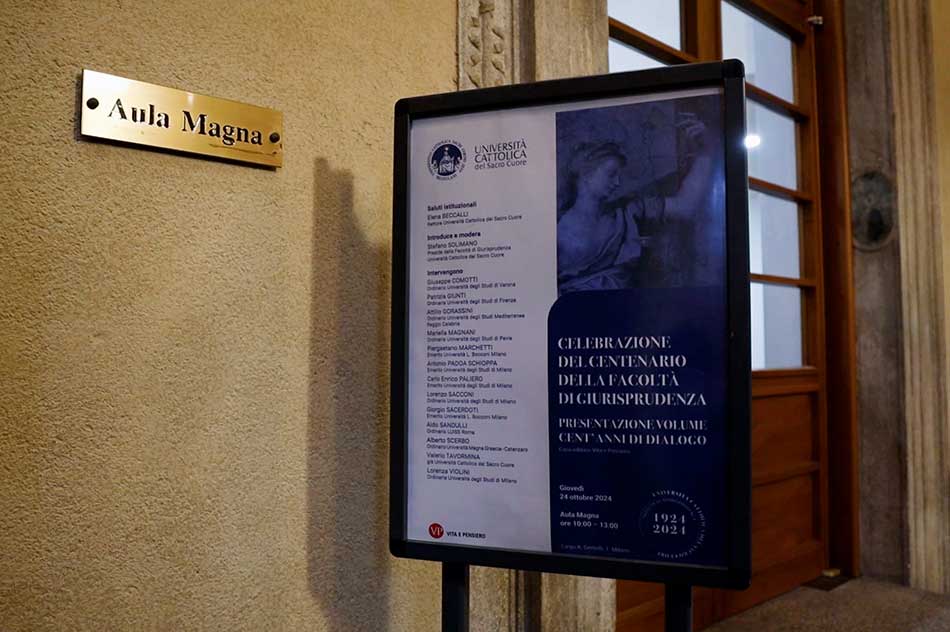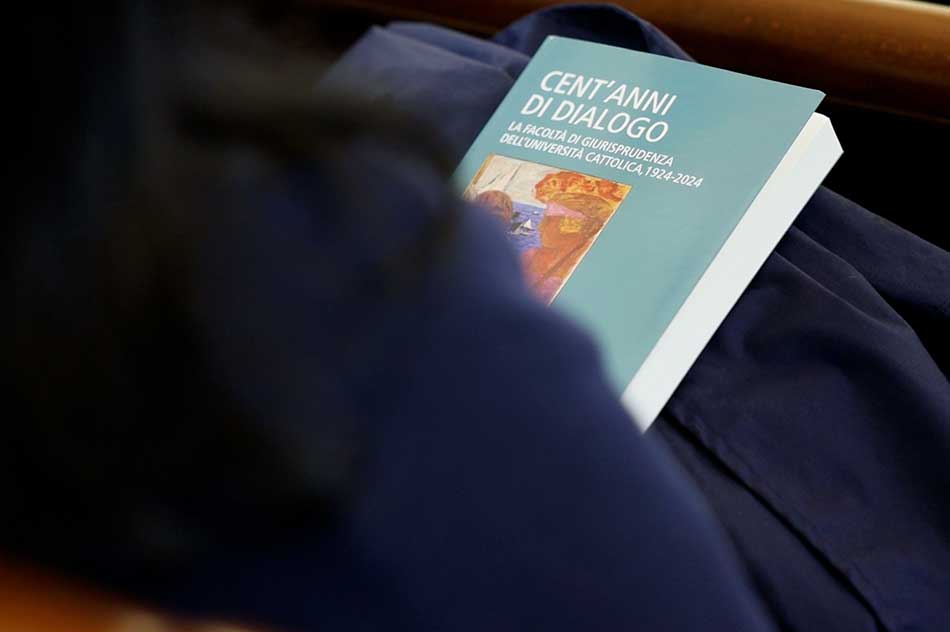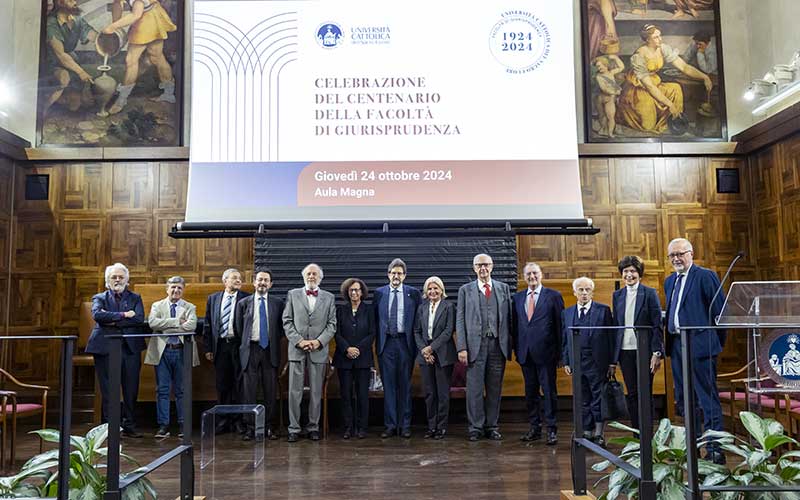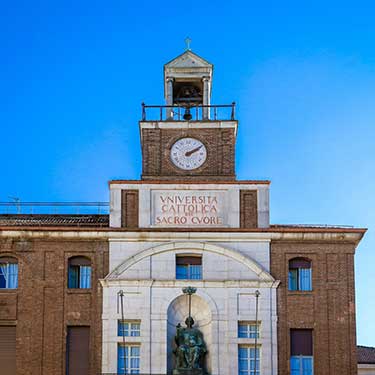The Faculty is among the most authoritative and prestigious in Italy, for the care devoted to technical, cultural and human preparation, for the level of its scientific research, for the rigor of the teaching given, and for its ability to recognize, stimulate and enhance the merit of its students. An excellence that has been built up in this century of its life thanks to the presence of Masters who have always considered law “certainly a very refined technique, but a technique at the service of the person and society,” as argued by Giovanni D’Angelo, Pietro Franzina, Andrea Nicolussi, Gaetano Presti and Stefano Solimano himself in the foreword to the volume “Cent’anni di dialogo”.
That is why, Dean Beccalli echoed, “putting law at the service of the individual and society ‒ we might say the common good ‒ may appear to be a rhetorical formula. But it is not to the extent that in teaching, research and the third mission we succeed in demonstrating how law is not simply a set of norms, but precisely a highly refined technique that, however, must not forget that it is a tool at the service of those who live in a community, a right as the foundation for ever civil coexistence. Thus, the mission of the Faculty of Law professors is to develop increasingly effective argumentative knowledge, thus a study of legal facts accompanied by effective critical thinking. Never more than in this era do we need young people with a keen ‒ and genuine ‒ critical sense.”
An unbroken line between past, present and future confirmed by the debate that marked the first part of the celebrations, enlivened in the morning session by the speeches of distinguished jurists and legal scholars from all over Italy. Among them are Giuseppe Comotti, professor at the University of Verona, Patrizia Giunti, professor at the University of Florence, Attilio Gorassini, professor at Università Mediterranea of Reggio Calabria, Mariella Magnani, professor at the University of Pavia, Antonio Padoa Schioppa, emeritus at the University of Milan, Carlo Enrico Paliero, emeritus at the University of Milan, Lorenzo Sacconi, professor at the University of Milan, Giorgio Sacerdoti, emeritus at the University L. Bocconi Milan, Aldo Sandulli, professor at LUISS Rome, Alberto Scerbo, professor at Università Magna Graecia ‒ Catanzaro, Valerio Tavormina, former professor at Università Cattolica del Sacro Cuore, Lorenza Violini, professor at the Università of Milan.
To conclude the celebrations, the afternoon event sponsored in collaboration with the #AlumniUnicatt community with testimonies from professors emeriti, former students of the Faculty, professors and young graduates. An occasion to remember not only the Masters who have taught at the Faculty since 1924, but also to reflect on the future challenges of law, which, as Dean Solimano said, relying on the words of Father Gemelli, if it wants to be “integral” and “organic” cannot be reduced to commentary and analysis, but must be framed in history and conceived as a “product of the human spirit”.
